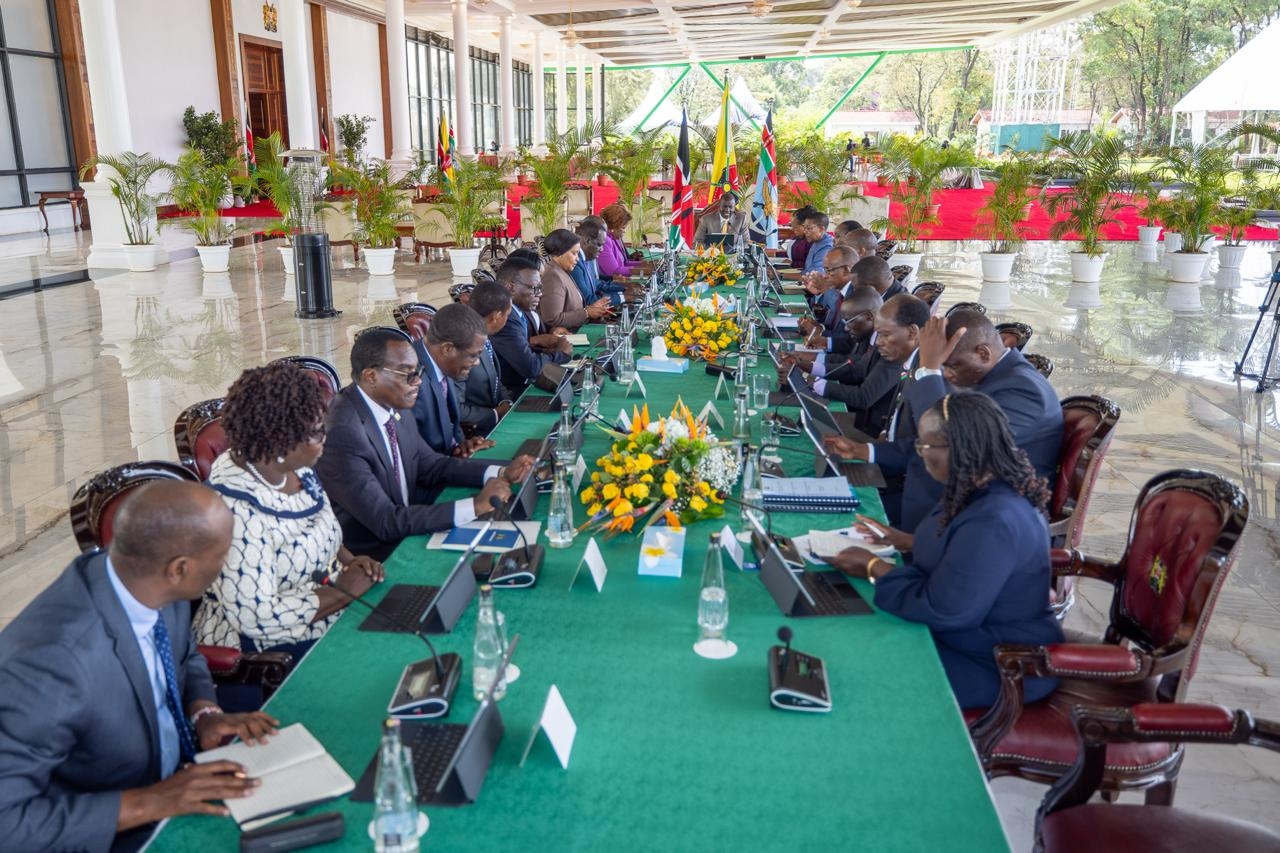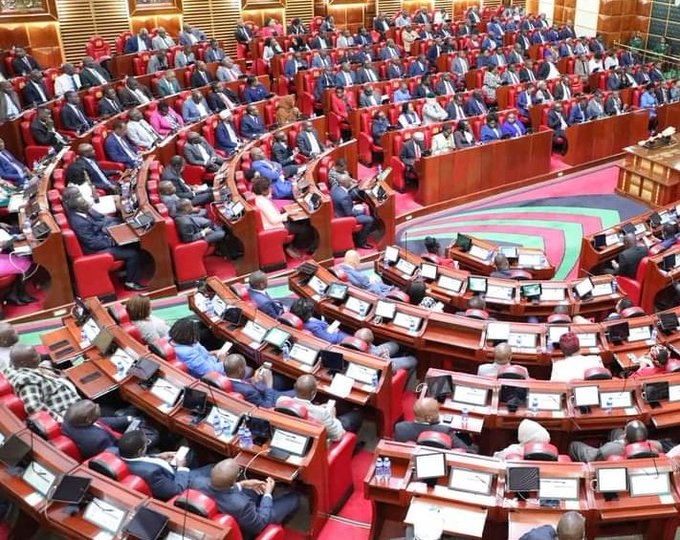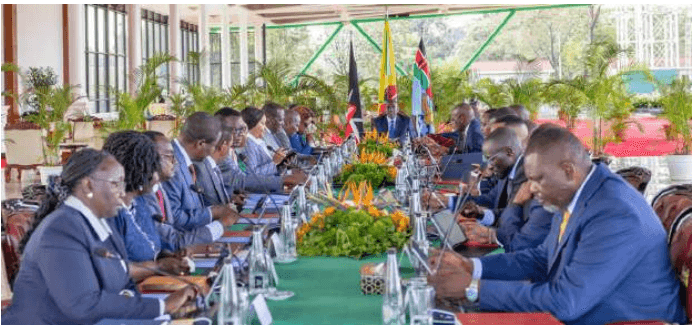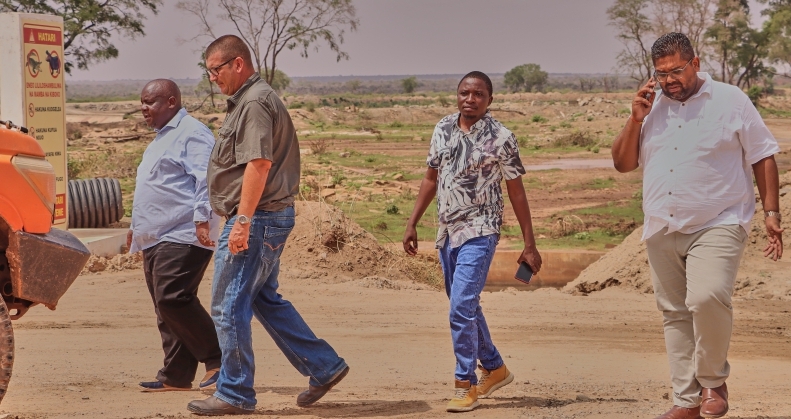Newly elected officials of Kenya National Chamber of Commerce and Industries Murang'a Chapter have pledged to revitalise the organisation and lobby for a better business environment for members.
Led by new chairperson Naomi Kagone, who was elected unopposed, the officials said the business environment had continued to worsen over the last few years, disadvantaging the business community.
She said she will partner with the county and national governments, and other development partners to come up with policies and memorandums of understanding that will favour her members and negotiate for programmes that will enhance business.
“The current business environment is not vibrant and studies have been done about it," she said.
"There are reasons why our businesses are not growing. With my team, we will interrogate the studies to come up with data-driven solutions to boost the vibrancy of businesses."
She, however, noted that her priority will be to increase the membership of the Chapter from the current 650 to more than 10,000.
Kagone regretted that the membership was low despite the fact that there were more than 200,000 registered businesses in Murang’a.
KNCCI, she said, should be similar to teachers’ unions or the Law Society of Kenya that push for the interests of members and should be joined by all traders.
In order to achieve this, Kagone said she will devolve the Chapter’s offices from Murang’a town to the nine subcounties and to each of the 35 wards to make it more accessible to traders and increase its visibility.
She also pledged to tirelessly lobby for inter-counties trade and advocate for policies that promote innovations, entrepreneurship and sustainability of businesses.
“We will organise networking forums and train members to take advantage of them to advance their businesses,” Kagone who will serve for the next three years together with nine directors said.
Deputy Governor Stephen Munania who attended the elections held in Murang’a town said the chamber is instrumental in the development of the county as traders are pivotal in the growth of the economy.
He reiterated the county government’s commitment to support the business community, noting that it is partnering with the national government to establish an industrial park at a cost of Sh500 million.
The park, Munania said, will boost industrialisation in the county while providing jobs to local youths.
The national government will also establish an Exports Processing Zone in the county at the cost of Sh1 billion that will be set up on the 1,200 acres ceded to the county by Delmote Company.
“We have also started an aggregation and value addition programme to consolidate mango, dairy and avocado farmers and I urge the business community to take advantage of the opportunity provided by the programme to set up processing plants," Munania said.
Munania urged traders to ensure they attend public participation forums during the drafting of policies that affect the sector so that their interests are included.
He underscored the commitment of the county government to ensure the county takes back the economic position it held when the coffee sector thrived decades ago.
“There was a time that Kenya led in coffee production in the African continent now its position 13. Then, Murang’a had the potential to rake in Sh24 billion annually from coffee as compared to the current Sh4 billion," he said.
“We want to bring back the structures that were there then so that our people benefit from their hard work.'
Chairperson of the Independent Elections’ Board under KNCCI Benjamin Onkobi appealed to the government and opposition leader Raila Odinga to find amicable ways of resolving their political differences.
Onkobi noted that the demonstrations held by Raila and his supporters have led to huge losses for the business community with some traders unable to service their loans and facing auctioneers.
He also urged county governments to work together with the chamber saying many have been giving them a wide berth and treating them as opponents.
“When traders point out the issues facing the counties, they are only doing so to protect their businesses and not to fight county governments,” he said.
(Edited by Tabnacha O)














